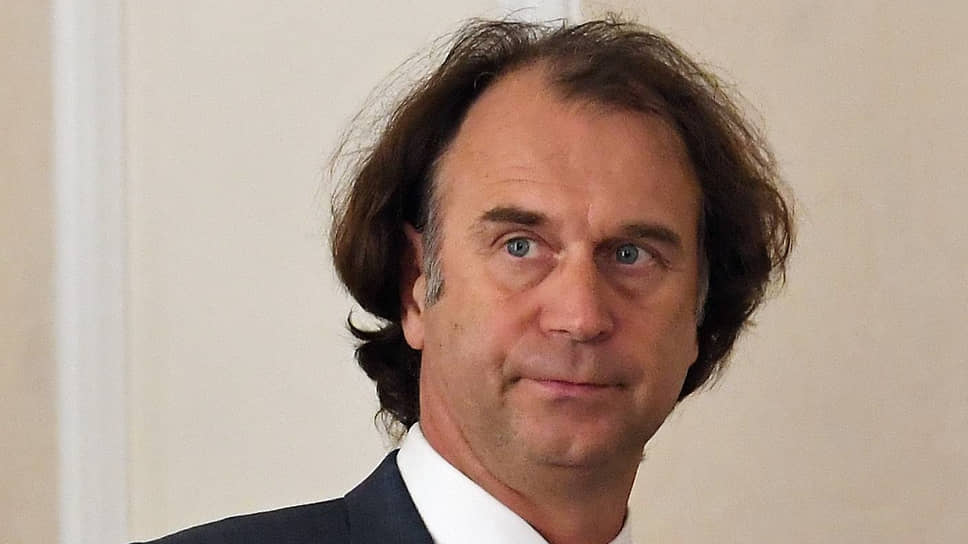how authorities are trying to curb rising food prices
[ad_1]
Rising food prices have once again become the focus of attention for authorities, who have vowed to limit the export of meat and eggs and introduce a temporary ban on the export of durum wheat, in addition to existing duties and quotas on other grains. Large manufacturers, hoping to avoid such harsh measures, hastened to announce price reductions for networks. However, the market doubts the weakening of regulation, calling duties “an indirect tax on agribusiness” and emphasizing that current government policy may “deprive investors of incentives.”
At the end of October, it became known about another package of measures aimed at containing prices for basic food products. So, after a meeting on October 25 with President Vladimir Putin, where the rise in prices for chicken was discussed, the Ministry of Agriculture announced a partial restriction on the export of this meat and eggs from December 1 to May 31, 2024 and duty-free import into the country in 2024 of up to 160 thousand tons of chicken. From December, restrictions will also affect durum wheat, used in the production of pasta: it is proposed to limit its export for six months.
The last time the food market came under such close attention from the authorities was in December 2020, when Vladimir Putin pointed out to the government the rise in prices of sugar, butter, pasta and bread. This ended with the introduction of maximum selling and retail prices for sugar and sunflower oil, which remained in place until June 1 and October 1, 2021, respectively. At the same time, quotas appeared on the export of wheat, rye, barley and corn, and duties were introduced on grain supplies outside the quota. These mechanisms, with minor adjustments, continue to operate today.
If in 2020 regulators tried to directly influence prices, then the measures announced in recent weeks, as suggested by Gazprombank Vice President Daria Snitko, are aimed at softening the blow of the ruble devaluation on inflation. Director General of the Institute for Agricultural Market Studies (IKAR) Dmitry Rylko says that the Ministry of Agriculture’s intervention in the price situation “is situational in nature”: officials are trying to act “proactively” in order to avoid the situation at the end of 2020.
Food inflation in October in annual terms, according to Rosstat, was at 6%. This, according to Sovecon director Andrei Sizov, is an average figure by Russian standards and small on a global scale. Thus, in the EU, the annual increase in food prices is estimated at 9%, the expert notes. He explains the current activity of the regulator primarily by the upcoming presidential elections in March 2024, on the eve of which the authorities “strive to demonstrate concern for consumers.” Manufacturers, for their part, are trying to respond with virtually the same strategy.
Threats and promises
Russia’s largest poultry meat producer, GAP Resurs, announced this week that it has proposed to federal retailers to increase product supplies by 50% on a long-term basis, and in exchange, from November 14, chains will reduce prices for broiler carcasses by 7–12% from current levels and fix them. Since the beginning of 2023, GAP Resurs clarified, the monthly volume of supplies to retail chains has increased from 16 thousand to 32 thousand tons. The Ministry of Industry and Trade and the Ministry of Agriculture told Kommersant that they support the idea of concluding long-term contracts. Kommersant’s sources believe that GAP Resurs and the Cherkizovo group will suffer more from the introduction of export restrictions. At GAP Resurs, exports of poultry meat in 2022 increased by 15%, to 144 thousand tons, at Cherkizovo – by 25%, to more than 100 thousand tons. The companies did not comment.
The pressure had a quick effect: according to data available to Kommersant, by November 12, the average selling price for a broiler carcass dropped to 207 rubles. for 1 kg versus 210 rub. per 1 kg a week earlier, fillet fell in price from an average of 375 rubles. up to 370 rub. for 1 kg. The Federal Antimonopoly Service reported that they are “monitoring pricing for poultry meat and eggs.”
Poultry farmers emphasize “the emerging decline in prices at the wholesale level,” hoping that things will not come to export restrictions, Kommersant’s source in the market believes. Another Kommersant interlocutor clarifies that so far the subcommittee on customs and tariff regulation has only supported the introduction of a duty-free quota for the import of up to 160 thousand tons of chicken meat into the Russian Federation. The Ministry of Economy reported that the proposal has been reviewed and a decision is expected next week.
One of the market participants says that the introduction of duty-free import quotas involves complex administration: at a minimum, this must be agreed upon at the EAEU level. According to him, in theory, producers from China and Brazil could take advantage of the quota, but “it is not a fact that this will lead to a noticeable reduction in prices.” A Kommersant source from among egg producers explains that the volume of egg exports is small, and the level of consolidation in the segment is low – there is practically no enterprise that collectively occupies more than 25% of the market. However, he agrees that many poultry farms, due to the need to update equipment with a limited planning horizon, “strive to make money in the moment.”
Exaggerated and politicized
Marketing Director of Blago Group of Companies Kirill Melnikov notes that government regulation measures are often implemented rapidly and can seriously affect work, but the industry adapts. Thus, to contain domestic prices for grain and sunflower oil, floating duties have been used since 2021, and in the case of grain, an export quota will also be maintained. Wheat, corn and barley are subject to duties of 70% of the difference between the base price established by the Ministry of Agriculture and the indicative price, calculated from the value of contracts registered on the Moscow Exchange. The size of the duty on sunflower oil is set based on the difference between the base price and the average market price for the month.
The government was asked to introduce duties on grain at the end of 2020 by the National Meat Association (NMA), the National Union of Pig Producers (NSU) and a number of other industry associations, citing rising costs of their products. Now, according to Daria Snitko, it was probably decided to maintain the duties due to increased prices on world markets and the depreciation of the ruble.
NSS General Director Yuri Kovalev says that without duties on grain exports, it is difficult for livestock farmers to maintain prices. According to him, current price fluctuations in certain segments of the meat market are associated, among other things, with a surge in demand due to a significant influx of funds to support the poor and insufficient growth in supply. Meat producers are also pressured by the rising cost of logistics, equipment and spare parts, labor costs and veterinary drugs, explains the head of NMA Sergei Yushin.
Although duties make business somewhat easier for livestock farmers, they, according to Andrei Sizov, cause serious damage to crop production. Farmers are now rapidly losing their margin of safety, and have almost nothing to replenish it with, he says. Thus, recently introduced duties tied to the ruble exchange rate also included products like peas. Durum wheat, which costs several times more than soft wheat, is an important crop, in particular, for the Orenburg region, where income from crop production is low.
The abolition of the duty on wheat exports, Dmitry Rylko believes, would cause “some rise in domestic prices” and a certain drawdown in quotations on the world market. Today, he clarifies, the ICAR price index in the center of the country is at the level of 2019, while prices for agricultural inputs have increased significantly since then.
Chairman of the Union of Grain Exporters Eduard Zernin is confident that the role of export duties in the formation of domestic grain prices is “exaggerated and politicized”: 85 million tons of wheat are consumed in Russia, and “the remainder is sent abroad.” This season, given the positive global environment, maximum exports are estimated at 65 million tons.
Executive Director of the Oil and Fat Union Mikhail Maltsev notes that the floating duty on the export of sunflower oil insures the market against a sharp increase in world prices and, while world prices are low, even with a high dollar exchange rate, the duty remains zero. However, new “exchange rate” export duties on meal and oil from soybeans and rapeseed have weakened the focus on increasing exports of processed products, he believes. Ketchup, subject to exchange rate duties, is exported from the Russian Federation only to the CIS and for rubles, and “it is unclear why this product should depend on the dollar,” adds Mr. Maltsev.
The Ministry of Agriculture said that this year the dynamics of food prices are within the limits of general inflation and seasonal trends, and the market for poultry meat and eggs was affected by a sharp increase in demand and rising costs of poultry farms. They plan to increase imports from friendly countries and, if necessary, are ready to take other measures. The Association of Retail Trade Companies believes that in this case it is necessary to use market methods. And Rusprodsoyuz is convinced that expanding state support for Russians in need is a more correct measure than external regulation.
Direct and indirect taxes
The fight against rising prices is also underway in other countries. Thus, in France, in August the authorities announced a price freeze for 5 thousand basic goods. Negotiations, according to media reports, were difficult: a number of manufacturers, such as Nestle and PepsiCo, were criticized for insufficient contribution to controlling prices. In the spring, the British Telegraph reported on the government’s plans to ask retailers to limit the prices of bread and milk. In the Netherlands, where food inflation has risen to a record 17.9%, parliament is considering cutting VAT on basic products for the year.
Director of Yakov and Partners Oleg Shenderyuk notes that many countries have temporarily abolished VAT on some goods. This may be more effective in controlling prices than restricting exports. According to Mr. Shenderyuk, in Portugal, zero VAT on a number of products led to a decrease in retail prices by 7.9%.
However, in the Russian Federation, after the outbreak of hostilities in Ukraine, serious sanctions pressure and external restrictions on traditional export items, the direct and indirect tax burden on most industries, on the contrary, is growing to replenish the deficit budget. “Duties on grain and oil have become an indirect tax for agribusiness, despite the formally zero profit tax rate in force in the industry,” emphasizes one of Kommersant’s interlocutors in the market.
Andrei Sizov adds that the budget is already counting on revenues from duties and only serious problems with the harvest can soften regulations. Daria Snitko notes that “the long-term desire to keep prices low on the domestic market may deprive investors of incentives.”
[ad_2]
Source link







